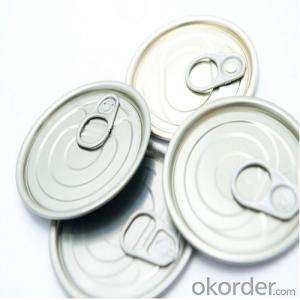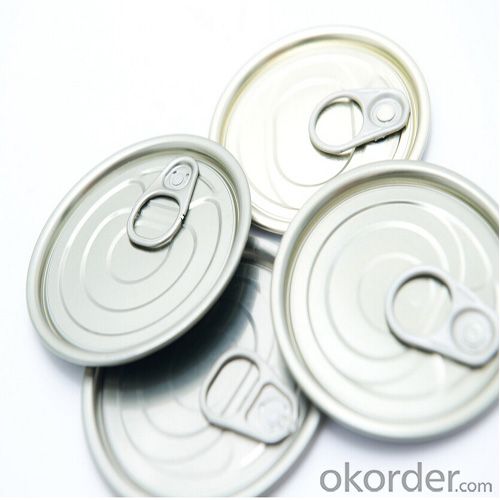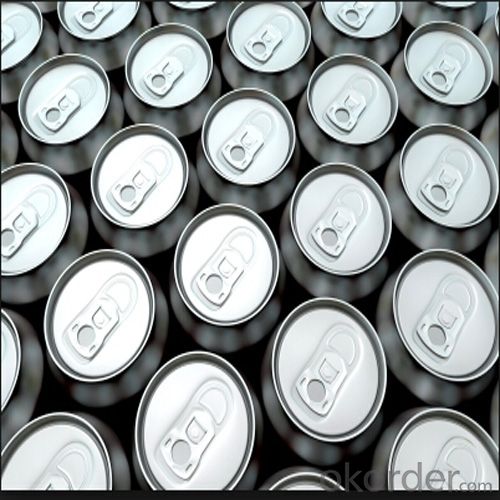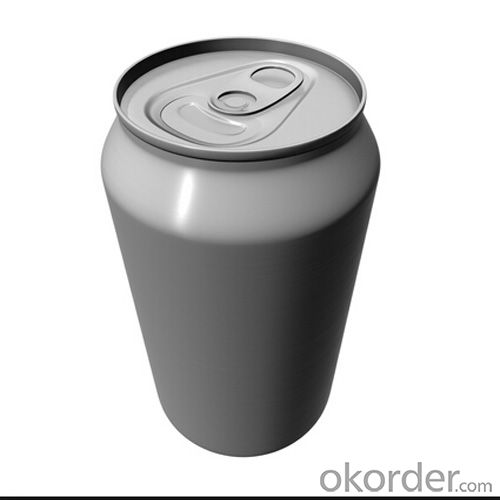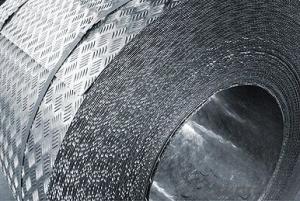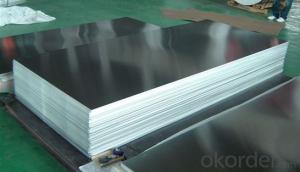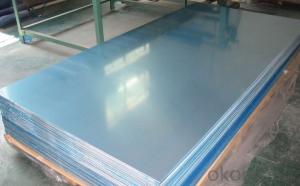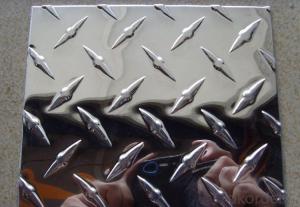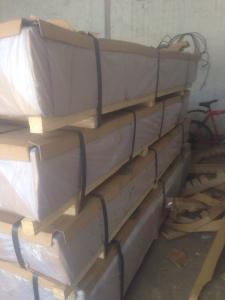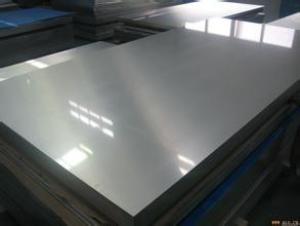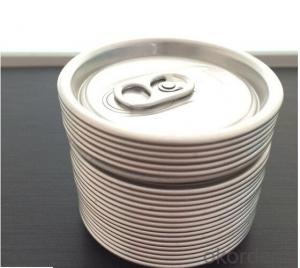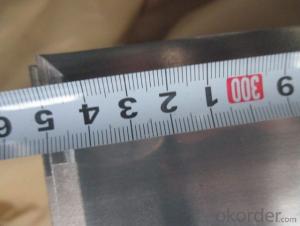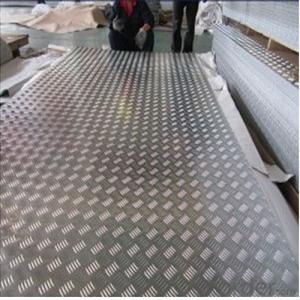Thin Diamond Plate Aluminum Sheets for High Quality Beverage Can Lids at Best Price
- Loading Port:
- Shanghai
- Payment Terms:
- TT OR LC
- Min Order Qty:
- 10 m.t.
- Supply Capability:
- 10000 m.t./month
OKorder Service Pledge
OKorder Financial Service
You Might Also Like
Specification
1.Structure of Beverage Can Lids with High Quality and Best Price Description:
Aluminum Coil and Sheet for Beverage Can Lidsadopt Japan original painting machine and PPG coating that is exclusively used for tank cap, and professionally produces the coated aluminium coils used for making ring-pull and lid of pop can. All the products are tested by the special instrument, and have passed the FDA recognition of the US. Hot Rolling Thick Aluminum Sheets are widely used for building use, decoration use, making cookware, busing making, shipping building, airplane making and so on。Sizes of aluminum sheet for decoration use: Thickness: 0.3mm~300mm Width: Under 2000mm ( Standard: 1000mm, 1219mm, 1500mm, 1540mm) Length: Under 10000mm. Products commonly used in signs, billboards, building exterior decoration, bus body, high factory wall decoration, kitchen sink, lamp, fan, electronic components, chemical apparatus, sheet processing, deep drawing or spinning hollow ware, welding parts, heat exchangers, Bell surface and plate, plates, kitchen utensils, accessories, safety equipment and other.
2.Main Features of Beverage Can Lids with High Quality and Best Price:
Good mechanical properties.
Easy processing, wearability.
Corrosion resistance
Resistance to oxidation.
3. Beverage Can Lids with High Quality and Best Price Images:
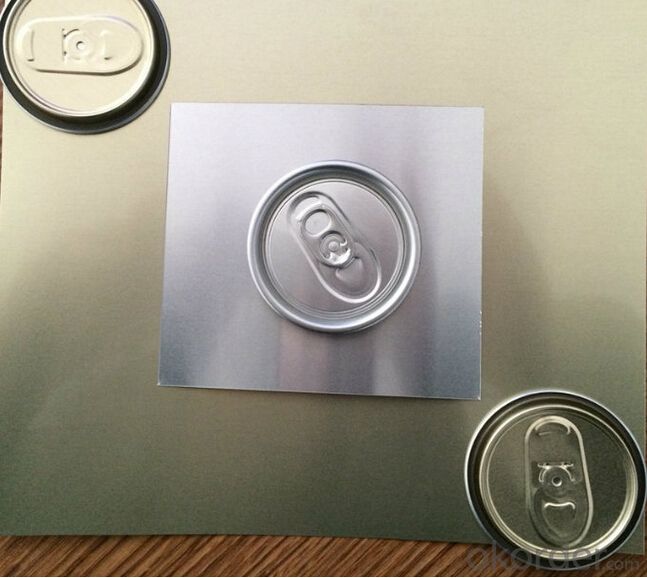
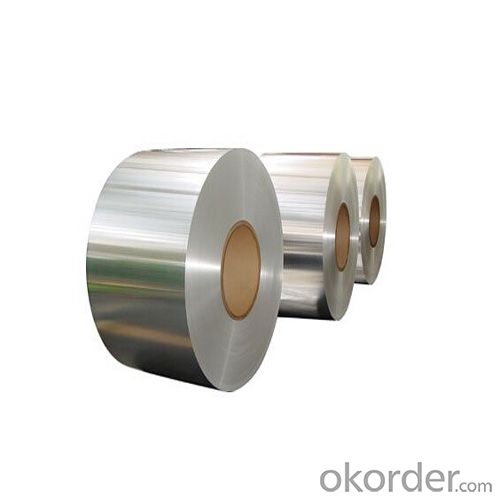
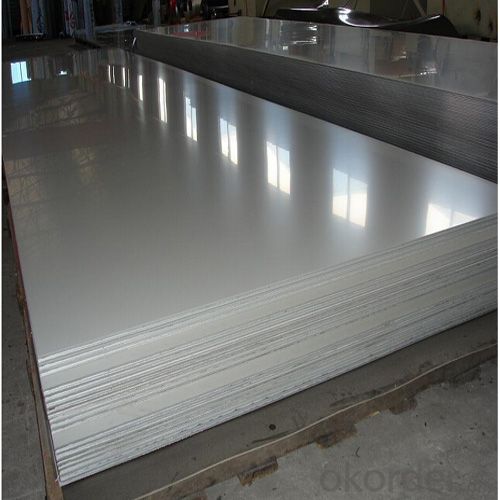
4. Beverage Can Lids with High Quality and Best Price Specification:
| Aluminium sheet | |||||
| Alloy No. | Thickness (mm) | Width (mm) | Length (mm) | Temper | |
| A1050,A1060, A1070,A1100 | 0.2-100 | 20-2200 | 20-8000 | O,H12,H22,H14,H16,H18, H24,H26,etc | |
| 3A21,A3003,A3105,A3004 | 0.2-100 | 20-2200 | 20-8000 | O,H14,H18,H24,etc | |
| A5052 ,A5005,A5083,A5754 | 0.2-100 | 20-2200 | 20-8000 | O,H18,H24,H32,H34,H111,H112 ,etc | |
| A6061,A6082,A6063 | 0.2-200 | 20-2200 | 20-8000 | T4,T6, T651,etc | |
| A8011 | 0.2-100 | 20-2200 | 20-8000 | O,H12,H22,H14,H16,H18,H24,H26, etc | |
5.FAQ
Q1.How long have you been in this product?
A1:More than 10 years.
Q2. What's the minium quantity(MOQ)?
A2. 5 Metric tons
Q3. How long is shipping time?
A3. 7 (ready-made products)-25 days(OEM)
Q4. How do you guarantee the quality?
A4. 1. Cooperating and Exchaning experience with sevral quoted aluminum companies
2. Japanese and Swiss production line and skilled works (regular training and testing)
3. more than 10 years production experience.
Q5. Do you have after sale service?
A5. Yes. Any quality problem occurs within one year, pls take photoes,we will be responsible.
- Q: Can the aluminum sheets be used for solar panel frames?
- Yes, aluminum sheets can be used for solar panel frames. Aluminum is a popular choice for solar panel frames due to its lightweight yet sturdy nature. It is corrosion-resistant, which helps protect the frames from environmental factors like rain, humidity, and UV rays. Additionally, aluminum is easily recyclable, making it an environmentally friendly option for solar panel frames. The versatility and durability of aluminum sheets make them a suitable choice for supporting and protecting solar panels, ensuring their longevity and efficient performance.
- Q: What are the different methods of surface treatment for aluminum sheets?
- Some of the different methods of surface treatment for aluminum sheets include anodizing, powder coating, painting, polishing, and brushing.
- Q: What are the typical thickness options for aluminum sheets?
- The typical thickness options for aluminum sheets vary depending on the specific application and industry requirements. However, aluminum sheets are commonly available in a range of thicknesses. Some of the most common thickness options for aluminum sheets include 0.025 inches (0.635 mm), 0.032 inches (0.81 mm), 0.040 inches (1.02 mm), 0.050 inches (1.27 mm), 0.063 inches (1.6 mm), 0.080 inches (2.03 mm), and 0.125 inches (3.18 mm). These thicknesses are often used in various industries such as aerospace, automotive, construction, and manufacturing. It's worth noting that specialty aluminum sheets can be found in even thicker options, depending on the specific requirements of a particular project.
- Q: Can aluminum sheets be used for architectural cladding?
- Yes, aluminum sheets can be used for architectural cladding. Aluminum is a popular choice for cladding due to its durability, lightweight nature, and resistance to corrosion. It is commonly used in both residential and commercial buildings for its aesthetic appeal and versatility in various architectural designs.
- Q: Can 101 aluminum sheets be painted with automotive-grade finishes?
- Yes, 101 aluminum sheets can be painted with automotive-grade finishes.
- Q: Can aluminum sheets be used for chemical storage containers?
- Yes, aluminum sheets can be used for chemical storage containers. Aluminum is a corrosion-resistant metal that can withstand the chemical reactions of various substances, making it suitable for storing a wide range of chemicals. Additionally, aluminum is lightweight, durable, and easily formable, making it a practical choice for manufacturing chemical storage containers.
- Q: Are aluminum sheets suitable for food processing conveyor systems?
- Yes, aluminum sheets are suitable for food processing conveyor systems. Aluminum is a popular choice for conveyor systems in the food processing industry due to its numerous advantages. Firstly, aluminum is lightweight yet strong, making it ideal for conveyor systems that require frequent movement and transportation of food products. Its lightweight nature allows for easy installation, maintenance, and modification of conveyor systems, while its strength ensures the durability and longevity of the equipment. Secondly, aluminum is corrosion-resistant, which is crucial in food processing environments where exposure to moisture, chemicals, and food acids is common. This resistance to corrosion ensures that the conveyor system remains hygienic and free from contamination, meeting the strict food safety standards required in the industry. Furthermore, aluminum is non-toxic, making it a safe material for food handling and contact. It does not react with food or release any harmful substances, ensuring the integrity and safety of the food being processed on the conveyor system. Moreover, aluminum is easy to clean and maintain, which is essential in food processing environments where hygiene is of utmost importance. The smooth and non-porous surface of aluminum sheets allows for easy removal of food particles, grease, and other contaminants, reducing the risk of bacterial growth and cross-contamination. In summary, due to its lightweight, corrosion-resistant, non-toxic, and easy-to-clean properties, aluminum sheets are highly suitable for food processing conveyor systems. They provide a reliable and efficient means of transporting food products while ensuring the highest standards of hygiene and food safety.
- Q: Are aluminum sheets suitable for interior design applications?
- Aluminum sheets are an excellent choice for interior design purposes. This material is both versatile and durable, allowing for various creative uses in enhancing the aesthetics of indoor spaces. Its malleability enables easy shaping, cutting, and manipulation, resulting in unique and contemporary designs. Different finishes, such as brushed, polished, or textured, further expand the design options. One major advantage of utilizing aluminum sheets in interior design is their lightweight composition. This feature simplifies handling and installation, reducing labor and transportation expenses. Additionally, aluminum's corrosion resistance makes it perfect for environments with high humidity or moisture, such as bathrooms or kitchens. Aluminum sheets find application in various aspects of interior design, including wall cladding, ceiling panels, room dividers, furniture, and decorative elements. The ability to paint or coat them in different colors allows seamless integration into any design scheme. Furthermore, perforation or engraving can create patterns or intricate designs, adding a distinct visual appeal to the space. Moreover, aluminum is a sustainable material with high recyclability. The recycling process consumes significantly less energy compared to the production of new aluminum, making it an environmentally friendly option for interior design applications. To summarize, the versatility, durability, lightweight nature, corrosion resistance, and manipulability of aluminum sheets make them highly suitable for interior design. They offer numerous design possibilities and can be used in various applications, rendering them a popular choice among designers and architects.
- Q: Are aluminum sheets easy to clean?
- Yes, aluminum sheets are generally easy to clean. Aluminum is a non-porous material, which means that it does not absorb liquids or stains easily. This makes it relatively easy to wipe off dirt, dust, or spills from the surface of aluminum sheets using a damp cloth or sponge. Additionally, aluminum is resistant to rust and corrosion, so it does not require any special cleaning agents or treatments. However, it is important to note that abrasive cleaners or scrubbing pads should be avoided as they can scratch the surface of the aluminum. Overall, with regular maintenance and proper cleaning techniques, aluminum sheets can be kept clean and in good condition for a long time.
- Q: How do you clean aluminum sheets?
- Achieving cleanliness for aluminum sheets involves a few straightforward steps: 1. Initiate the process by eliminating any loose dirt or debris from the aluminum sheet's surface. Use a soft brush or cloth to gently sweep away any particles. 2. Create a cleaning solution by combining warm water with a mild detergent or dish soap. It is crucial to avoid strong chemicals or abrasive cleaners since they can harm the aluminum. 3. Submerge a soft cloth or sponge into the cleaning solution and delicately scrub the aluminum sheet. Ensure that the entire surface is covered, giving extra attention to any stains or spots. 4. In the case of persistent stains or marks, utilize a non-abrasive cleaner specifically designed for aluminum. Apply the cleaner onto a soft cloth and gently rub it onto the affected area until the stain is eliminated. 5. Thoroughly rinse the aluminum sheet with clean water to eliminate any soap residue. This step is vital to prevent the accumulation of residue or streaks on the surface. 6. Dry the aluminum sheet completely using a soft towel or cloth. Verify that there is no remaining moisture as it can lead to water spots or corrosion over time. 7. To enhance shine and provide protection, apply a thin layer of aluminum polish or wax. This procedure aids in restoring the luster and safeguarding the aluminum from future tarnish or oxidation. It is important to acknowledge that the cleaning technique may differ based on the type of dirt or oxidation present on the aluminum sheet. Always refer to and adhere to the manufacturer's instructions for specific cleaning recommendations.
Send your message to us
Thin Diamond Plate Aluminum Sheets for High Quality Beverage Can Lids at Best Price
- Loading Port:
- Shanghai
- Payment Terms:
- TT OR LC
- Min Order Qty:
- 10 m.t.
- Supply Capability:
- 10000 m.t./month
OKorder Service Pledge
OKorder Financial Service
Similar products
Hot products
Hot Searches
Related keywords
